publication-type: Other
-
Lecture: Gender equality and the energy sector
-
The introduction of electric cooking in Nepal – A gender and socio-technical transition perspective
In Nepal, 70.4% of the population does not use clean cooking fuels. Electric cooking could benefit the main users (women) by reducing the negative health effects brought by burning solid biomass and saving time by the efficient nature of cooking on induction stoves. However, gender norms prevent women, the main users, from making investment decisions…
-
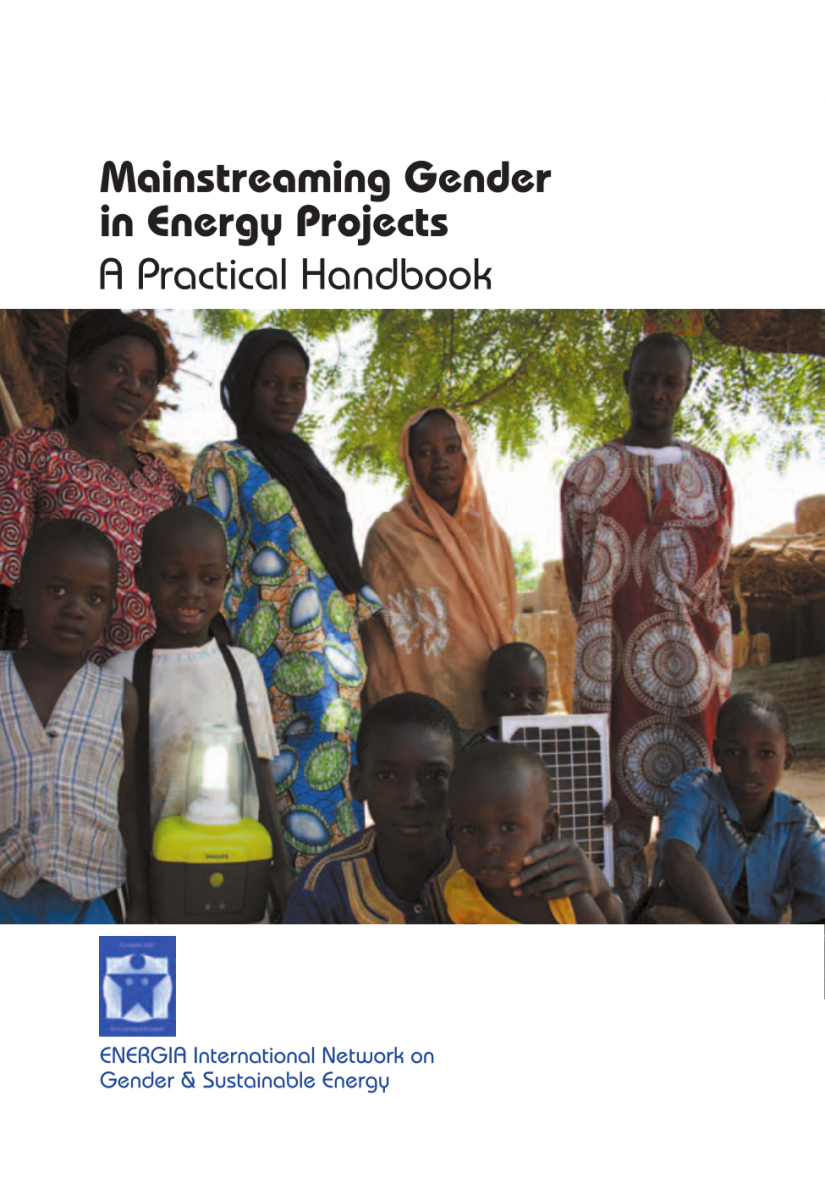
Mainstreaming Gender in Energy Projects: A Practical Handbook
This Handbook on mainstreaming gender in energy projects seeks to provide guidance, practical tools and examples for energy projects that show how to undertake gender mainstreaming systematically. TheHandbook is a product of an ENERGIA initiative on Gender in Energy Projects and is based on ENERGIA’s work on gender mainstreaming since the 1990s, including gender and…
-
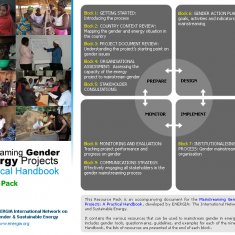
Mainstreaming Gender in Energy Projects: Resource Pack
The Resource Pack is an accompanying document for the Mainstreaming Gender in Energy Projects: A Practical Handbook, developed by ENERGIA. The Resource Pack on mainstreaming gender in energy projects provides practical tools and examples for energy projects that show how to undertake gender mainstreaming systematically. It contains various resources that can be used to mainstream…
-
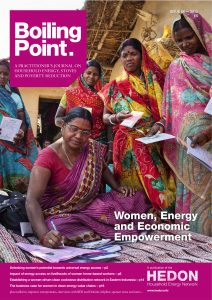
Boiling Point Issue 66: Women, Energy and Economic Empowerment
-
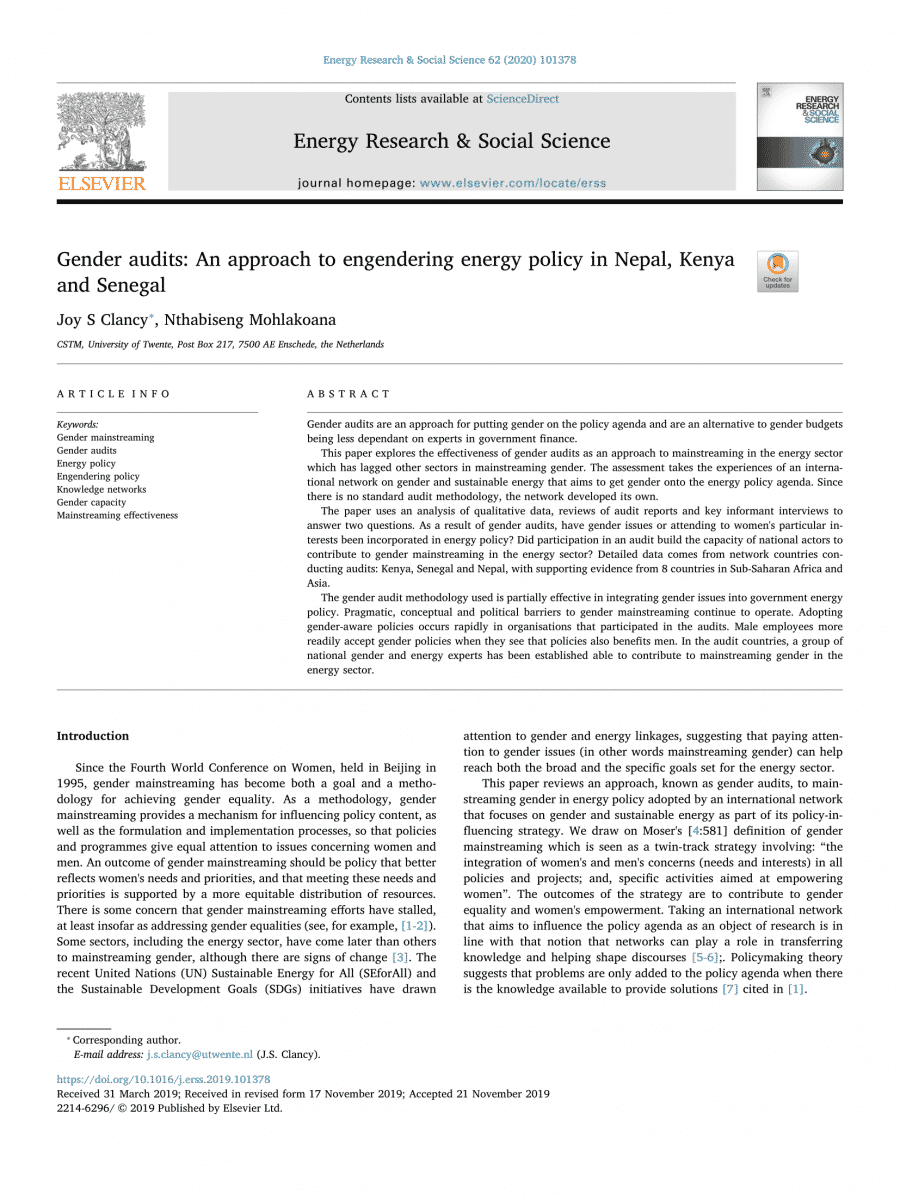
Gender audits: An approach to engendering energy policy in Nepal, Kenya and Senegal
-
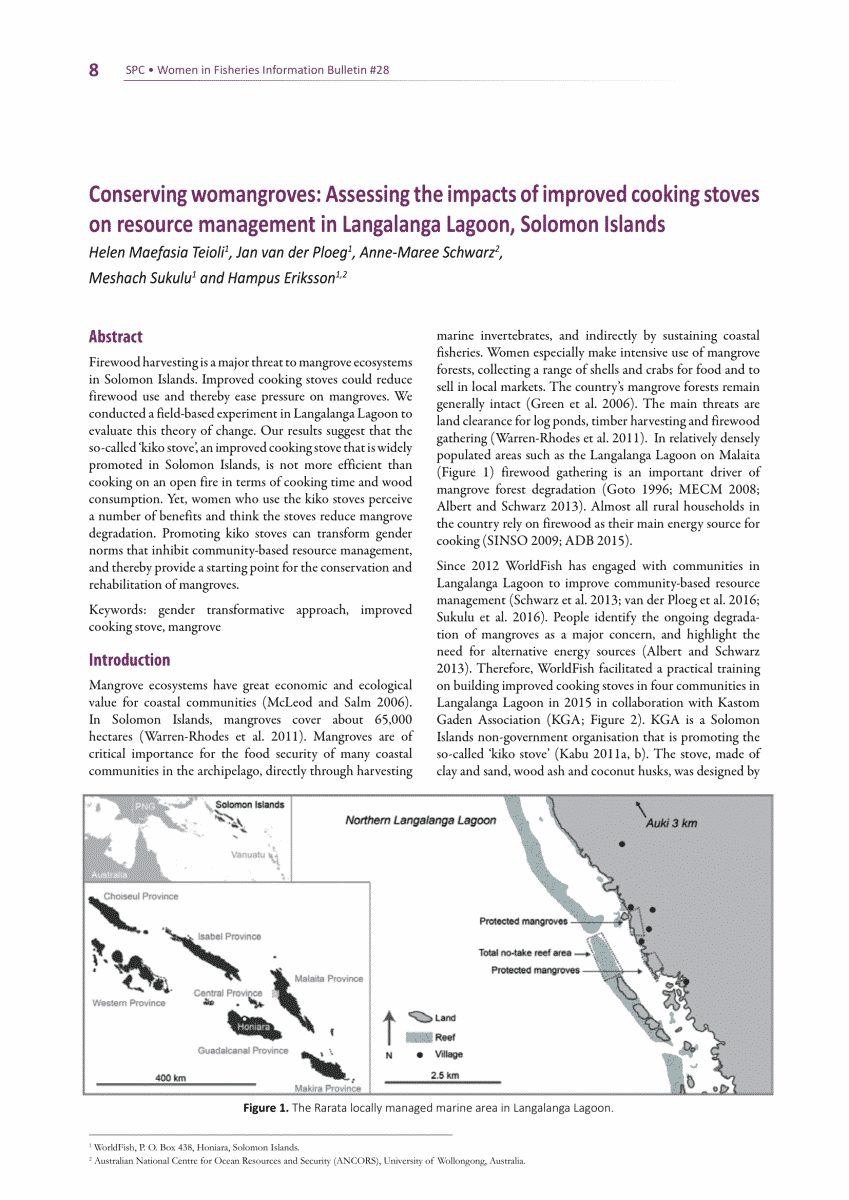
Conserving womangroves: Assessing the impacts of improved cooking stoves on resource management in Langalanga Lagoon, Solomon Islands
-
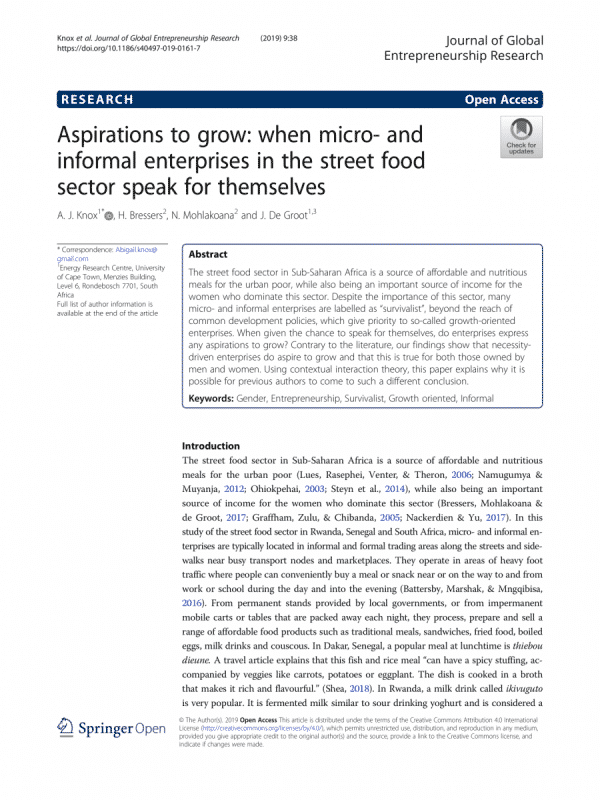
Aspirations to grow: when micro- and informal enterprises in the street food sector speak for themselves
The street food sector in Sub-Saharan Africa is a source of affordable and nutritious meals for the urban poor, while also being an important source of income for the women who dominate this sector. Despite the importance of this sector, many micro- and informal enterprises are labelled as “survivalist”, beyond the reach of common development…
-
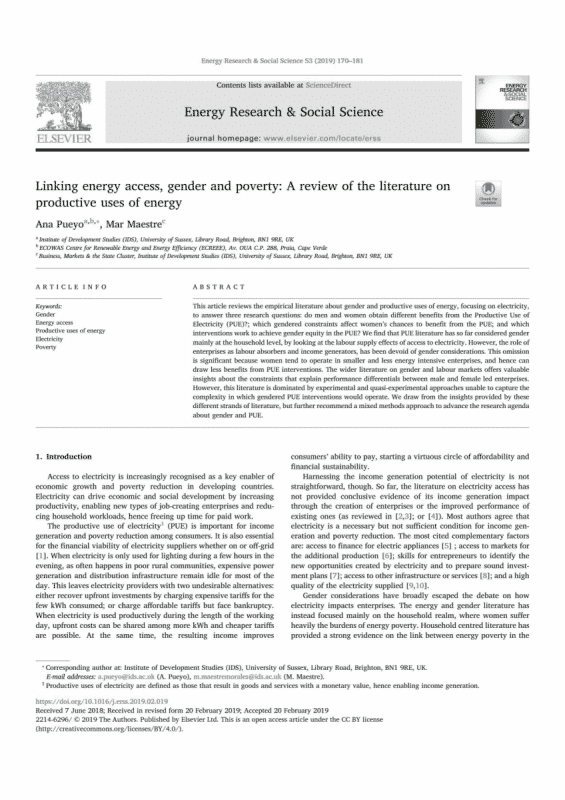
Linking energy access, gender and poverty: A review of the literature on productive uses of energy
-
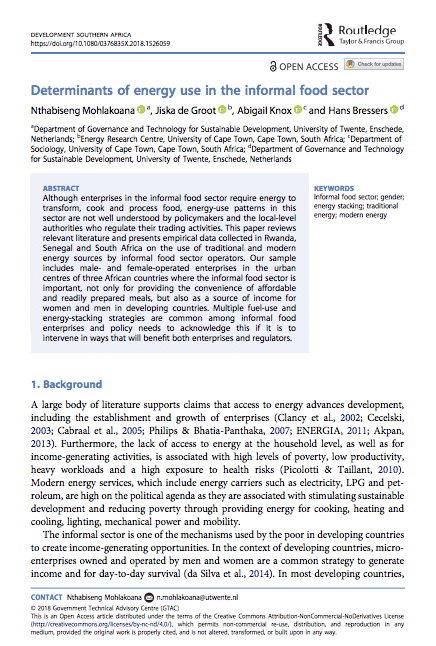
Determinants of energy use in the informal food sector
Although enterprises in the informal food sector require energy to transform, cook and process food, energy-use patterns in this sector are not well understood by policymakers and the local-level authorities who regulate their trading activities. This paper reviews relevant literature and presents empirical data collected in Rwanda, Senegal and South Africa on the use of…
-
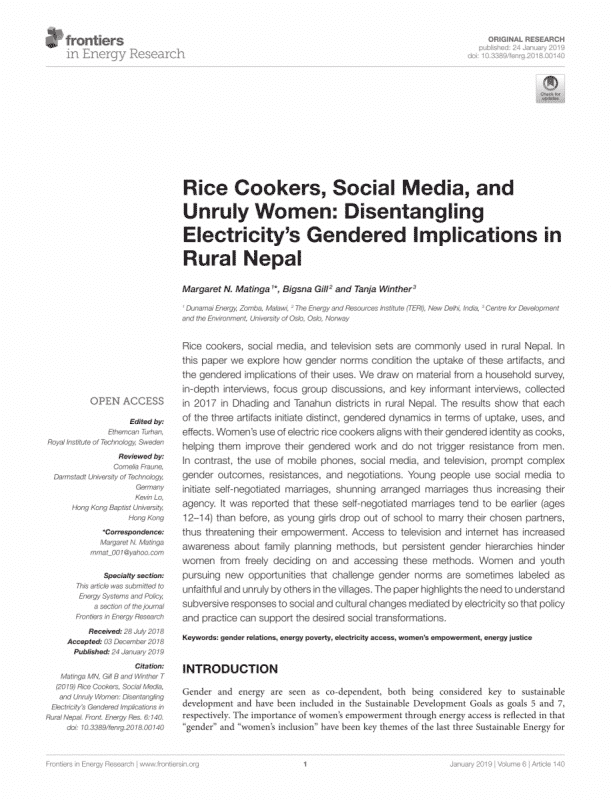
Rice Cookers, Social Media, and Unruly Women: Disentangling Electricity’s Gendered Implications in Rural Nepal
-
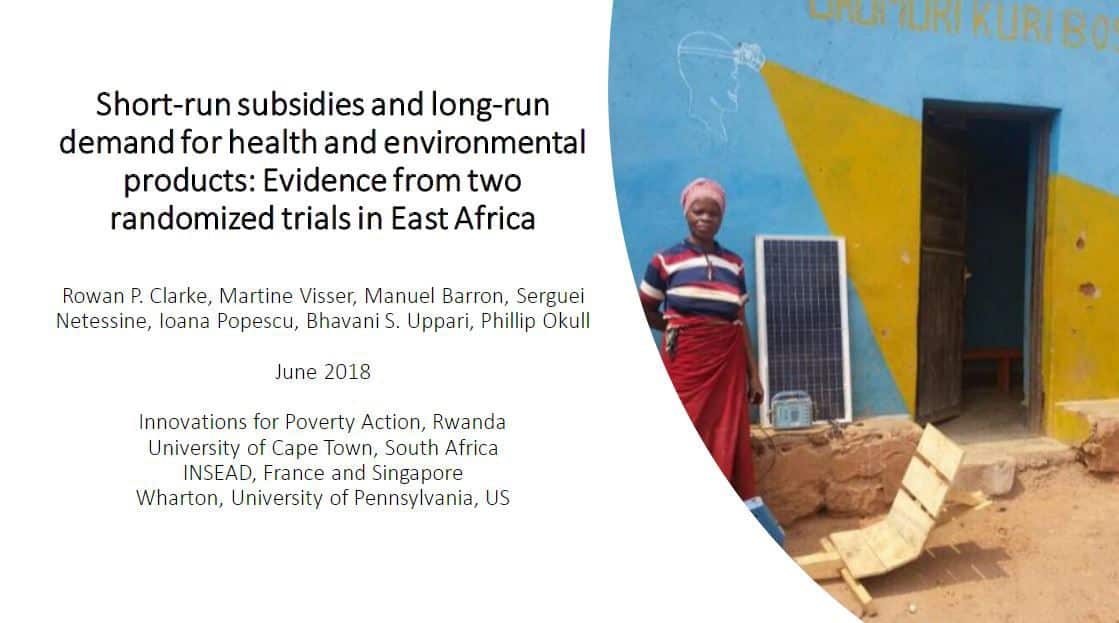
Short-run subsidies and long-run demand for health and environmental products: Evidence from two randomized trials in East Africa

